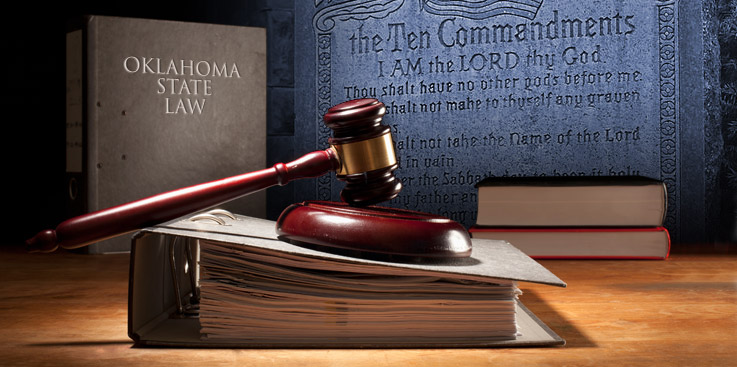A political storm has been brewing for several years in Oklahoma over a monument of the Ten Commandments that has been on display at the state capitol since 2012.
The monument was built using private donations. However, in 2015, the American Civil Liberties Union funded lawsuits that eventually led to its removal from state property. This last week, a new bill was passed in the Oklahoma House of Representatives that would allow for the monument to be returned to the capitol; this new law allows for documents with historical significance to be displayed on public property.
This latest development is in opposition to a public vote last November where voters were asked to consider changing the state constitution to allow state funds to be used for religious purposes. The measure was voted down 57 percent to 43 percent.
People who oppose the monument feel that it discriminates against unbelievers, saying that the state should be impartial and that this monument favors a specific group of people. Daniel chapter 3 tells of a monument built by the government of Babylon—officials and citizens were required to come to its dedication and bow in worship to it. Only three brave young people refused to bow to the government’s god.
Although the situation in Oklahoma is different in many respects, the principle remains: When the government involves itself in religious questions, it’s usually only a matter of time before it feels it can dictate morality. The increased interest of legislators on religious issues should be of deep concern to thinking Christians today—even if they agree with the Ten Commandments.
Why? According to Revelation 13, combined civil and religious legislation will become a key at the close of earth’s history (Revelation 13:11–18). A civil government working to display the Ten Commandments might just take that a step further—even to the point of enforcing worship, potentially violating the rights of not only unbelievers, but Sabbath-keepers as well!
You can learn more about the importance of the Sabbath at the end of time by clicking here.
Lawmakers and the Ten Commandments

